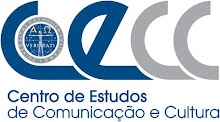Línguas em Debate - O ciclo de conferências continua
7 de Outubro de 2009, 10h00, sala 145
Weronika Szubko (Academy of International Studies, Lodz, Poland)
Multiple Language Learning Models - The Linguistic Foundations
The talk will briefly discuss the linguistic basis of the didactic-methodological considerations that have led to the possibility of teaching subsequent foreign languages (L2+n) in a manner different from that used for the first foreign language in order to tap the potential already developed through the teaching of the mother tongue and the first foreign language. Selected models of multiple language learning will be described. The talk will also address the issue of how the teaching and learning of tertiary languages can be structured in such a way as to consciously incorporate the learner`s existing language knowledge and language learning experience more efficiently.
8 de Outubro de 2009, 15h30, sala 134
Łukasz Bogucki (Academy of International Studies, Lodz, Poland)
Of CATs and men: automatisation in the translation process
This talk will pertain to the current role of the translator in the process of specialised translation. The translator's workbench will be described. Amateur and professional uses of machine translation as well as applications of computer aided translation tools will be discussed. Mention will be made of typical and less known functions of the internet in translating specialised material. The aim of the talk is to attempt to decide whether translators can eventually be superseded by computers, at least in working on certain types of documents.
Apoio: LLP-ERASMUS PROGRAMME
Europe: a challenge for German and Culture Studies
Peter Hanenberg participa na conferência anual da German Studies Association (GSA) em Washington (8-11 Outubro de 2009) com uma conferência subordinada ao tema "Europe: a challenge for German and Culture Studies". Nesta conferência, Peter Hanenberg propõe um novo desafio para os Estudos Germanísticos a partir do conceito de Europa como um paradigma que abre horizontes muito além das limitações de uma filologia nacional. Tem como temas centrais de abordagem a importância do paradigma cultural, o lugar dos Estudos Literários perante os novos Media e a Tradução como o processo que melhor caracteriza a Ideia de Europa. Com esta conferência, Peter Hanenberg leva a teoria de base da Linha de Investigação "Translating Europe across the Ages", que dirige no Centro de Estudos de Comunicação e Cultura (CECC) da Faculdade de Ciências Humanas da UCP, para mais um debate internacional. A conferência da GSA conta com mais de 1000 participantes dos Estados Unidos e de todo o mundo.
Depois do congresso, Peter Hanenberg segue para o Centro de Estudos de Cognição e Cultura da Case Western University, em Cleveland, parceiro no projecto "Cognição e Cultura" do CECC, onde proferirá mais duas conferências no âmbito deste projecto, nomeadamente sobre "The Power of Tacit Knowledge" e "Strange loops and a cognitive approach to genre".
Depois do congresso, Peter Hanenberg segue para o Centro de Estudos de Cognição e Cultura da Case Western University, em Cleveland, parceiro no projecto "Cognição e Cultura" do CECC, onde proferirá mais duas conferências no âmbito deste projecto, nomeadamente sobre "The Power of Tacit Knowledge" e "Strange loops and a cognitive approach to genre".
Subscrever:
Comentários (Atom)
